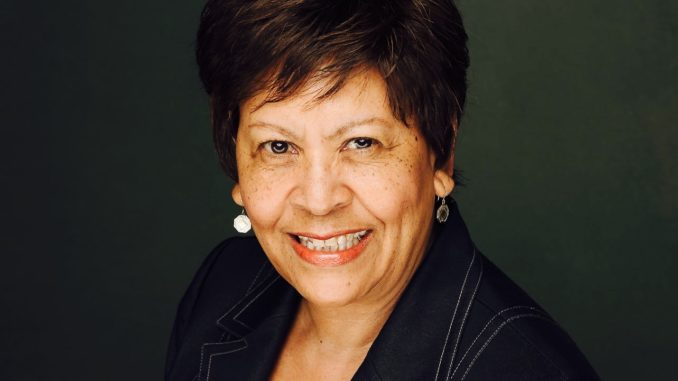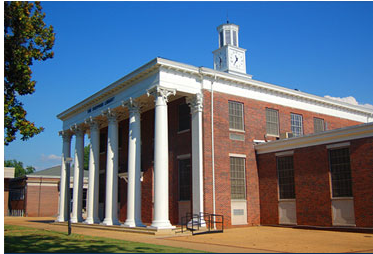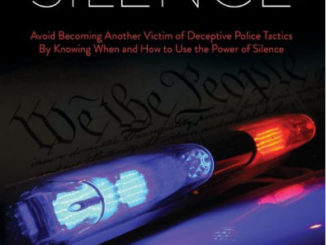
By Taroue Brooks
Dr. Cynthia Warrick is a pharmacist and health services researcher; and has served on faculty and administrative positions in higher education for 20 years. She is the 7th President of Stillman College and the first female to lead the Historically Black liberal arts college located in Tuscaloosa Alabama. She has remained active in health disparities research by facilitating partnerships with research institutions and mentoring undergraduates, graduate students, junior faculty and investigators. Dr. Warrick began her academic career on the faculty of Howard University, followed by the University of Texas Houston Health Science Center, Texas Southern University, Florida A&M University, and Elizabeth City State University. Prior to her selection as President of Stillman College, she served as Interim President of Grambling State University and South Carolina State University. She is a life member of Alpha Kappa Alpha Sorority, Inc., and serves on the board of the United Way of West Alabama, the West Alabama Chamber, the Tuscaloosa County Industrial Development Authority, the Tuscaloosa County Preservation Society and the Tuscaloosa Rotary Club.
How do you manage the pressure as the first female President at Stillman? Throughout my career, I’ve held positions with executive leadership responsibilities. I’ve learn not to internalize issues and not to take challenges personally. I’ve found the best way to solve problems is through effective communication.
What has been your biggest hurdle as President? The greatest challenge for a College President is to have reliable data in order make decisions that are fair and consistent.
What is your approach to ensure that the Stillman is maintaining its viability? Stillman, like many small liberal arts colleges, must be willing to transform to remain viable. Stillman’s location makes it very attractive. Tuscaloosa is a college town and Stillman has a long-standing relationship with the University of Alabama. We work strategically to strengthen this relationship and with the Tuscaloosa business community that includes the US manufacturing headquarters of Mercedes Benz USA International, and its numerous parts suppliers. Stillman is also located in the Opportunity Zone; and will use this location to develop projects and initiatives to support our students and the local community, as we diversify the revenue streams that sustain the College.
While we are clear as to why HBCU’s were established, do you feel as though we still need them and why? HBCUs are responsible for creating the Black Middle Class in the United States. They provide a unique environment, free from racism and discrimination, which allows students to grow into competent and confident adults. The numerous leadership opportunities make HBCUs critical to providing the talent which the US needs to be globally competitive.
How have you been able to stay out of the shadow of the larger and more popular institutions? Our goal is not to stay out of the shadow, but to partner with large research institutions; so that our students receive the best of both worlds. Stillman and other HBCU students enjoy small teacher to faculty ratios; and their teachers actually know the students’ names. When larger institutions want to diversify their graduate and professional degree programs, they look to HBCUs to recruit the next generation of physicians, dentists, lawyers, scientists, and educators.
What are three goals you would like to accomplish as President? I’m very interested in developing a model that HBCUs and other small liberal arts colleges can apply to transform with greater sustainability:
1. Establish other streams of revenue (increase research, business partnerships, Opportunity Zone projects, etc.) that reduce the College’s dependence on tuition and fees. This also prevents the need to increase tuition, ensuring a college degree is accessible and affordable.
2. Increase the competitiveness of Stillman students’ entry into major graduate programs and professional schools. We established an Apprenticeship program and I want to see these programs have a positive and major impact on our graduates’ lives, families, and communities.
3. Advance community engagement to a degree that Stillman is the first institution people think about when they are looking for partners to enhance community services.

What kind of support does Stillman need today? Just like many HBCUs, Stillman needs its Alumni to give back to the College; in the form of time, expertise, and dollars. If more alumni would give to their HBCUs on a consistent basis, that will provide significant support. Stillman participates as a charity in the Combined Federal Campaign (CFC) operated by the Federal Office of Personnel Management (OPM). If the bulk of alumni contributed $10 per month, the impact would be extremely significant; sending a message to donors and agencies that “We Love Our HBCUs.”
What is the appeal in getting students to enroll at Stillman? Stillman is a great choice for students today because we’re small, thus providing numerous opportunities to interact with faculty, staff, and other students. All of the Divine 9 Greek letter fraternities and sororities are on campus, providing the HBCU experience. Scholarships are available from the United Negro Scholarship Fund (UNCF), major corporations and federal agencies. Attending Stillman provides students the opportunity to establish a network that will connect them to Stillman Alumni, but other HBCU alumni around the world. Stillman is affordable and has one of the most accessible Presidents that exist in higher education today.

How active and involved is the alumni? Alumni are very involved; especially those who have great memories and are successful. We’re always excited to learn about and connect new Alumni; especially in supporting athletic events (basketball, baseball, softball and Track & Field).
What’s next for you in the next five years? Positioning Stillman to be a premier HBCU will take at least 5 years to accomplish. I’m looking forward to seeing our Opportunity Zone projects (Hotel, Senior Housing, Mixed-Use Development) come to fruition. I hope to work as long as my health allows it; this is my mission and ministry.
About
Stillman College, authorized by the General Assembly of the Presbyterian Church in the United States in 1875, held its first classes in 1876 and was chartered as a legal corporation by the State of Alabama in 1895. At that time, the name was changed from Tuscaloosa Institute to Stillman Institute. The Institute was a concept initiated by the Reverend Dr. Charles Allen Stillman, pastor of First Presbyterian Church of Tuscaloosa. The mandate for the Institution expanded over the years and it acquired its present campus tract of over 100 acres.
MISSION
Stillman College is a liberal arts institution with a historical and formal affiliation with the Presbyterian Church (U.S.A.). It is committed to fostering academic excellence, to providing opportunities for diverse populations, and to maintaining a strong tradition of preparing students for leadership and service by fostering experiential learning and community engagement designed to equip and empower Stillman’s students and its constituents.
VISION
Under girded with the principles of faith and ethical integrity inherent in a Christian education, Stillman College will confidently pursue the best in scholarly inquiry to produce graduates who will contribute to the 21st century knowledge economy. Through continuous assessment and improvement, Stillman will deliver on student success, establish new partnerships, and serve our community and as a result will be recognized as a leader in higher education.
3601 Stillman Blvd.
Tuscaloosa, AL 35401
(205) 366-8817






Be the first to comment